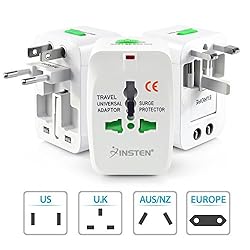Top 15 Tips for Travelling to Paris, France
So you're going to Paris, France? Is it your first time? Let's get started with the 10 most important tips I've gathered from my time in France:
(This post marks the first in my series of travel posts. To read my web development posts, please see here)
As some of you know, I just returned from Paris, France from speaking at dotCSS (videos to be released soon) and attending at dotJS. During my stay, I met some amazing other developers, talked nerdy with some of the best from Europe, and took an extra week to visit some long-time friends from my semester abroad in France.
But as awesome as my stay was, I also learned some very valuable lessons for travelling around Paris, France. These are tips I've accumulated over the past 7 years of occasionally travelling to France, and doing my Study Abroad in France.
So you're going to Paris, France? Is it your first time? Let's get started with the 10 most important tips I've gathered from my time in France:
1. Buy a Metro Card
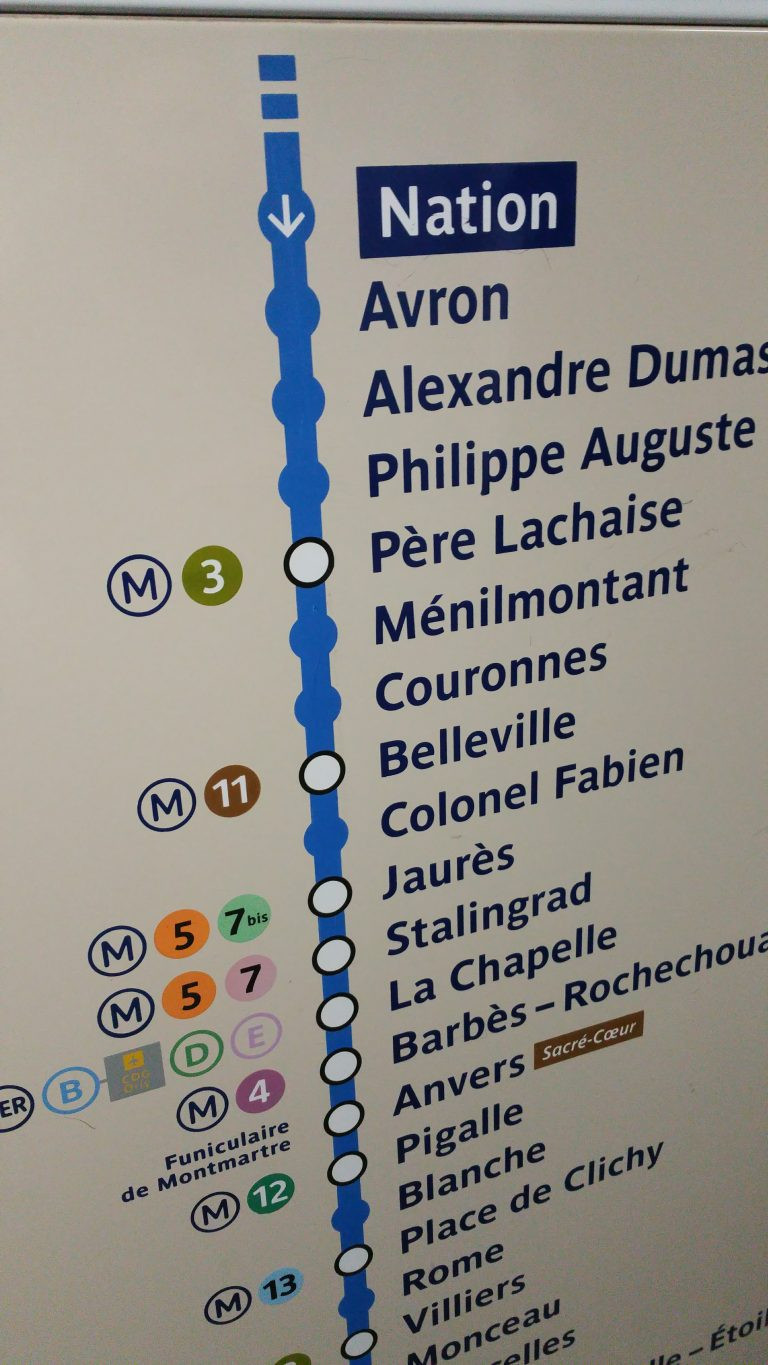
This might seem obvious, but it really will be worth it. It can often be misleading when you read online: even if you are staying for under 3 days, it's still worth getting one. I leave it to my friends who are locals in Paris: according to them, you still save money, even if you are staying for a couple days. The cost of a reloadable card costs 28.50 euros. On a 3-day trip to Paris, you might visit 2 tourist destinations per day, costing an average of 3.30e per each way (or 3.30 4 3 = 36.90). And that's probably close to a minimum for most; if you're at all like me, you'll want to explore many of the other areas of Paris, getting on and off the metro at will. With that in mind, it seems like an obvious choice to buy a metro card.
2. Check for Free Transport Days
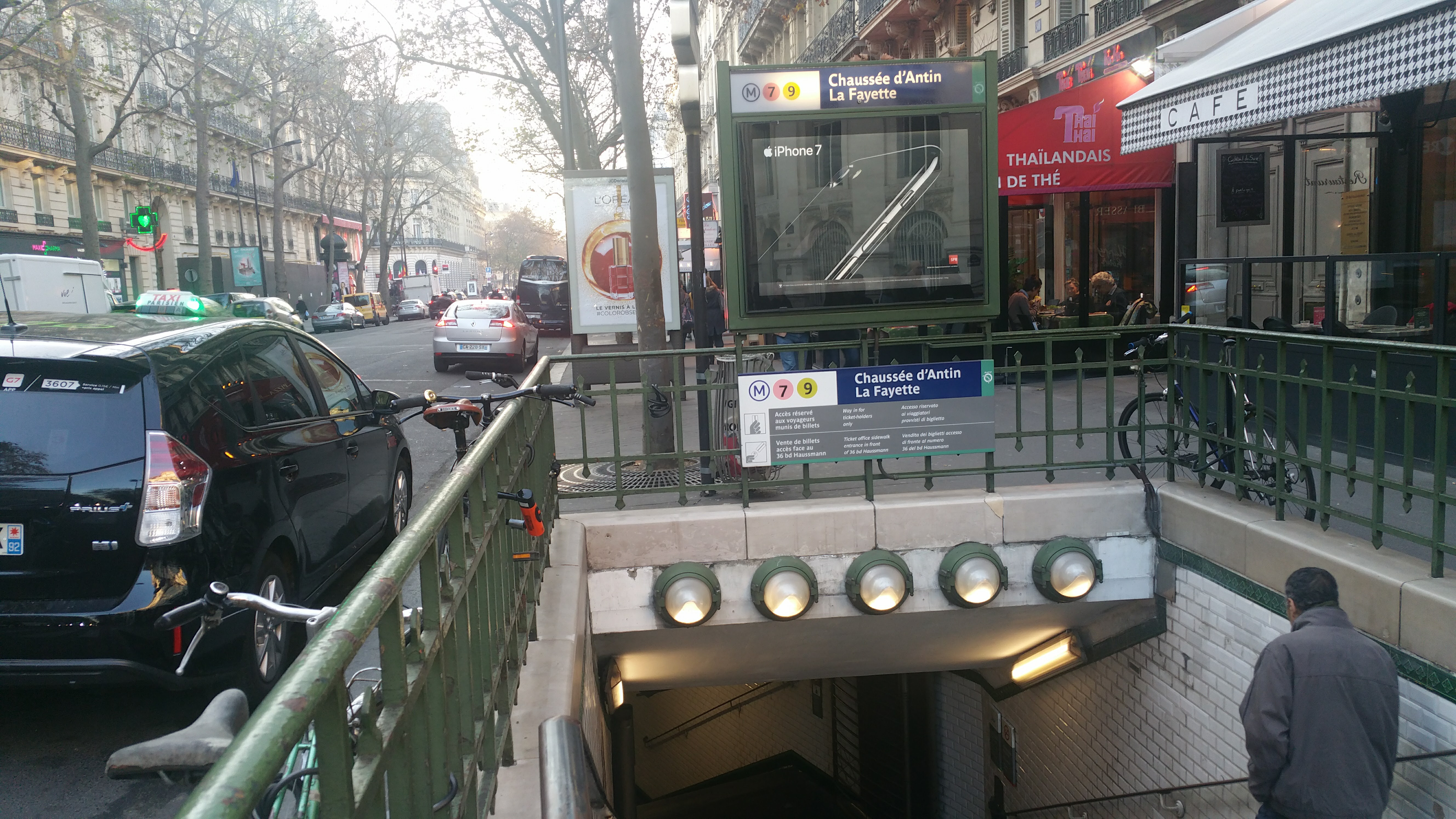
On the other hand, if you go to Paris, France during bad pollution days (known as "Pic de Pollution"), you may luck out and get free access to transporation. In these cases, the metro, busses, and any muicipal transporation can all be free for the day. It's often easy to miss this; the easiest way to know if it's free is if the alternate gate is open. Try to enter the station without paying first, in case the day is free; I saw many foreigners paying at the ticket machines, even though the transporation was free.
In the past, during August, all transportation in Paris, Frence used to be free (no longer the case). Check the city website to make sure.
You can check for French holidays in Google Calendar, or Outlook, by adding the "Holidays (France)" calendar.
3. Consider SNCF Train Alternatives
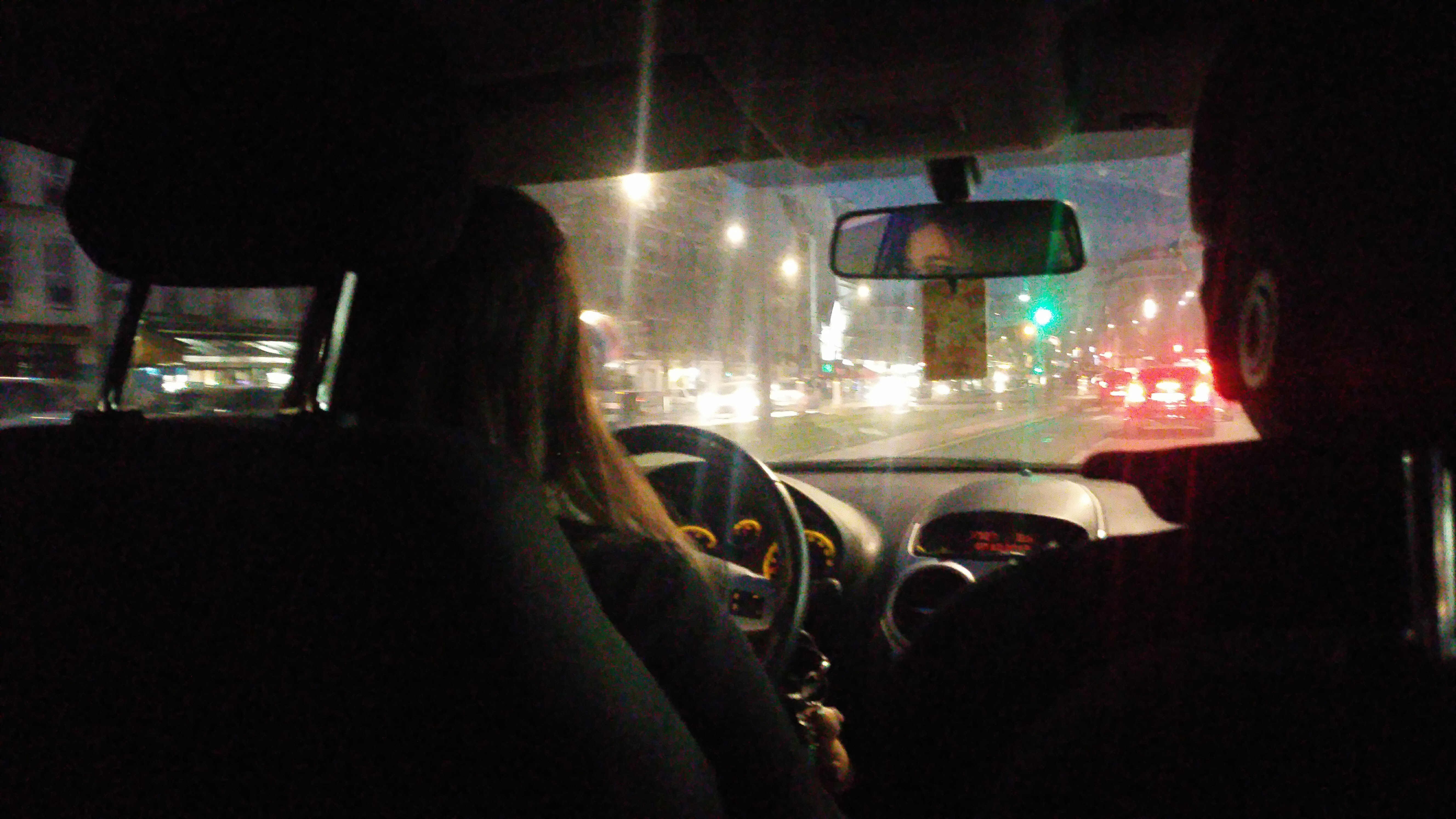
Most travellers to Paris, France think that in order to get between major cities in France like Lyon, Paris, and Brest, that you have to use the private railway transportation system (also known as SNCF). But there is a better, cheaper, more enjoyable way to get around, which is used mostly by locals: introducing covoiturage (carpooling).
These are apps that you install on your phone that let you hop in the car with people going the same place as you. Think UBER, but for big trips. There are many apps that do this, but by far the best and most popular is blablacar.
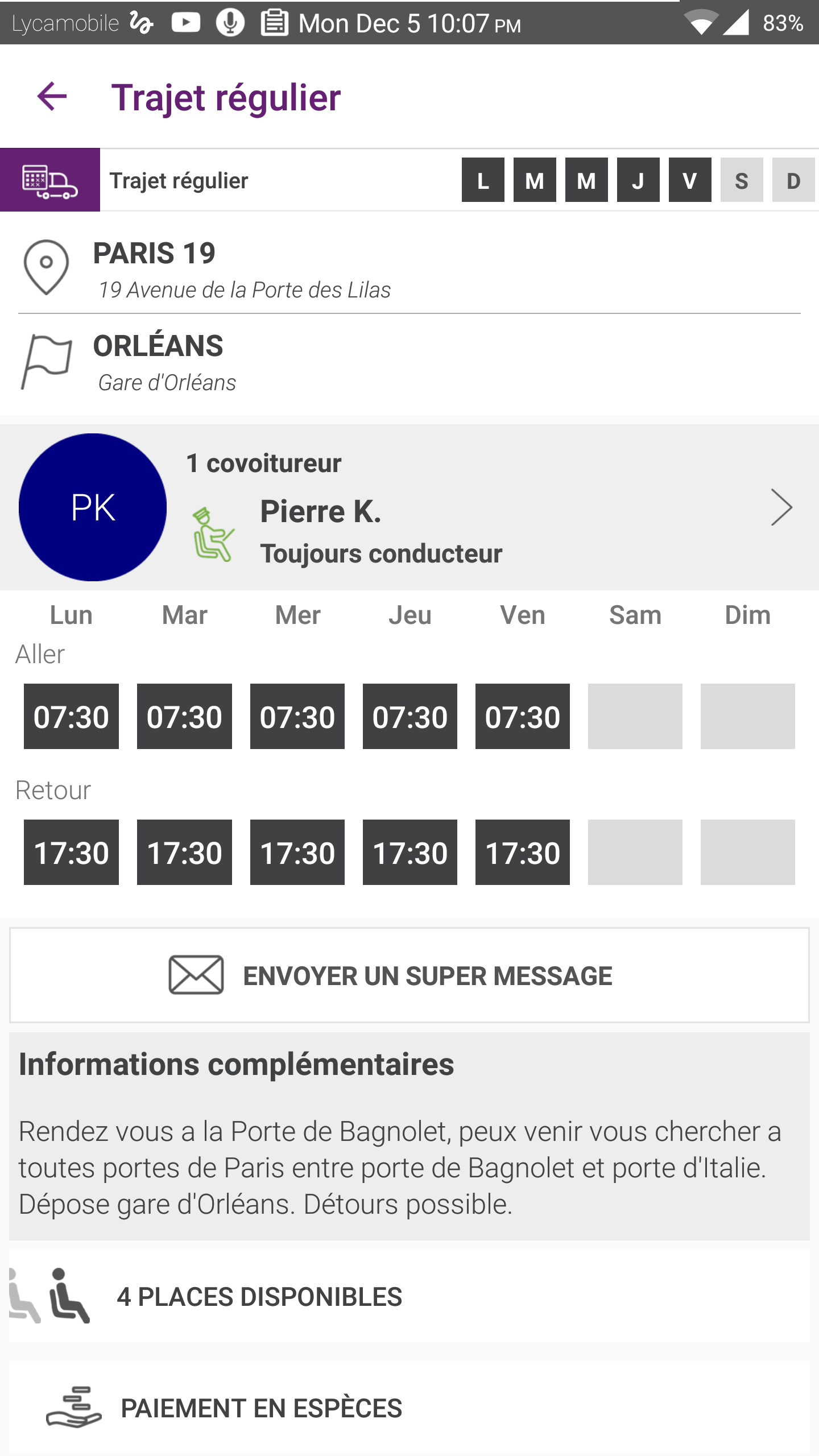
(As a precaution, it's usually to only ride with someone who has at least 2 levels of verification, and has a phone number).
My last trip to Paris, France wasn't actually the first time I had used services like this; back when I studied in University of Rennes 2, I used the service (called covoiturage.fr at the time, now called blablacar) to get from Rennes to Orleans to visit my former exchange family. My driver, Florian, turned out to be a DJ at the time, and we still keep in touch on Facebook to this date!
That's not to say you should never use SNCF. There are often special promos, like #2, in which prices are half-price.
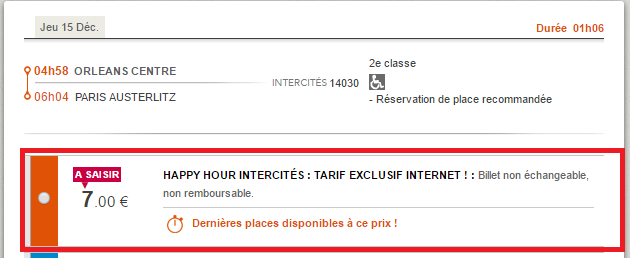
As per usual, it's best to check the SNCF website for periodic updates on pricing. You can also get "last-minute" tickets -- meaning tickets that someone was not able to make, so sold at a reduced price. I've seen these kinds of tickets for as loow as 7e for Paris to Orleans, and have purchased tickets this way. These "good deals" tend to be more towards the early morning (6AM-8AM) or late evening (10PM-12AM). Look for the red text to find them.
I think the coolest thing about services like these is that you get to join a local, make new friends, and you get to do so in an authentic way. Just make sure to request a non-smoking car (often hard to find).
Other SNCF Alternatives
There are other private transportation companies in France, which can be especially useful if you want to get to airports from outer cities. For example, when I visited my former exchange family in Orleans, I had the option of using the "navette". There are many other companies like Transpers. Consult your city/region's train station website for more info.
4. Bring Toilet Paper
Although Paris' sewage system is significantly better than countries like Greece and Taiwan, France has a bathroom problem: there are only a limited amount of public bathrooms. Public metro stations do not have public bathrooms, urinels, or even stalls.
Beware of Paid Bathrooms
Even in places where you might think there to be a public bathroom, you can be wrong. I visited the mal Chatelet-des-Halles with my friend from France and was shocked when I saw they were charging 85c for entry ($1.50). These bathrooms are often accompanied by an agent or agents at the front with a desk, where they take payments (cash only). This nicely leads us to the next point abbout carrying cash at all times.
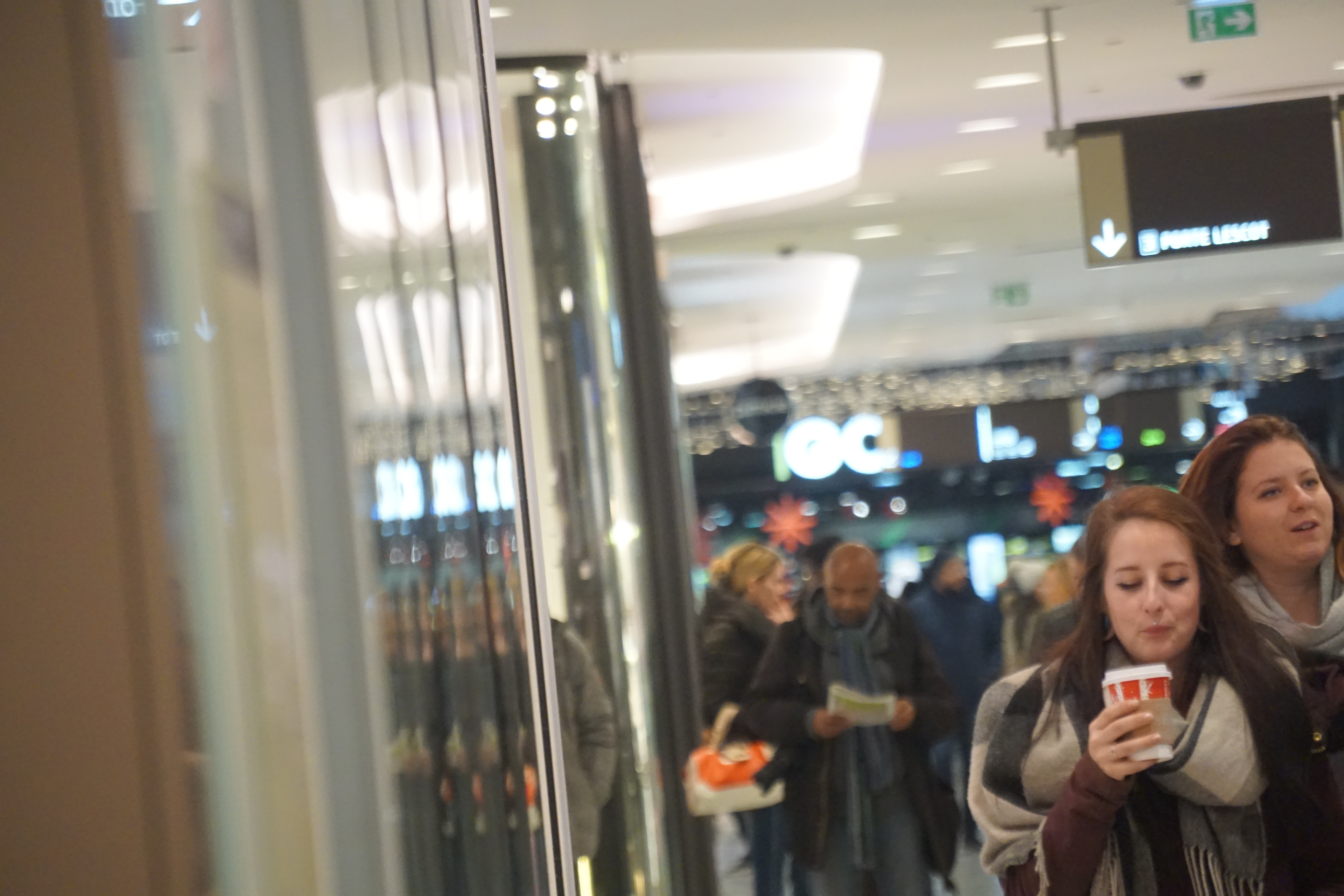
5. Always Carry Cash
I know many of my friends who travel to the US and only use credit cards. This is often touted as "the easiest way to travel" because it lets you easily expense your transactions online because all the receipts are online, including merchant names. However, there are problems with this approach:
- Only a small portion of merchants in France actually accept credit cards
- When the merchant does accept a credit card, they may not accept the variant you have (ex. VISA, Mastercard)
- Studies show that you spend less money when you carry cash
- Bathrooms. Need I say more?
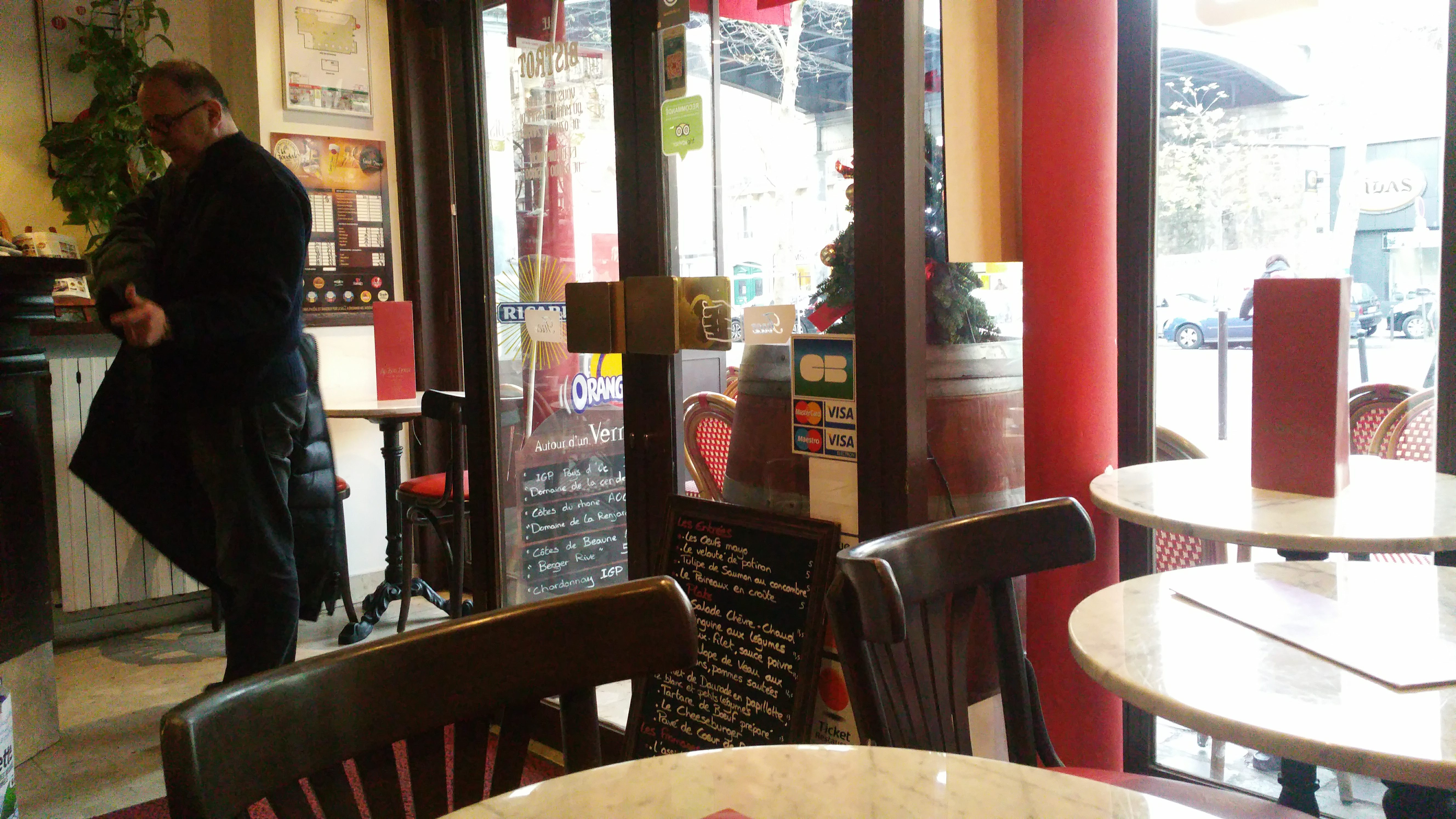
Some might object to this, claiming that carrying such an amount of money around is unsafe, and they would be right. This leads me to the next tip.
6. Use a Safe to Store Your Passport and Extra Cash
Specifically in France, pickpocketing is a big problem. I recently met with another developer who explained to me he had been mugged while walking back from the P station. It was late at night, and he had his phone out. A group of guys walked buy, and took his phone out of his hand as he was navigating with it. A lenghty pursuit followed when a nearby police officer witnessed the chase. The theives were never found.
If you are staying in a hotel, ask the concierge if there is a safe. Often times, even if there isn't one in the room, there are public safes, sometimes even located next to the check-in counter.
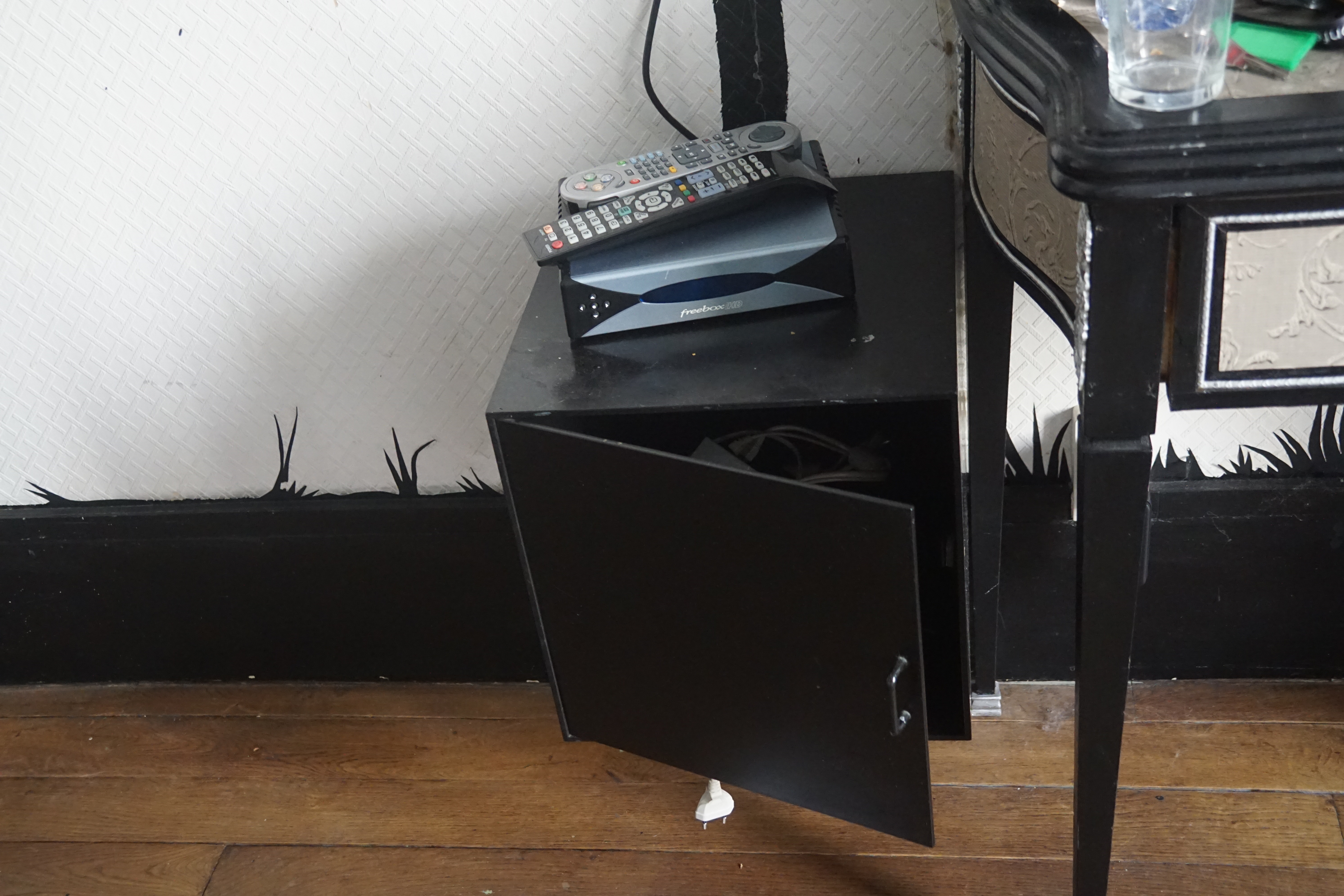
Don't Look Vulnerable
My previously-mentioned developer friend had his phone out, and was not watchiing his surroundings. Instead of constantly looking at your phone, try to take a simple path where you are turning less; that way, you can put your phone away and walk straight, only taking out your phone periodically to update. This not only saves you batteries, but it also makes walking the streets anywhere much more safe.
In the same vein, try to avoid hanging cameras, dangling, open pockets, or overpacked bags.
You Probably Have Access to a Safe in Paris, France
Store all your excess cash in the safe, along with your passport. That way, when you travel, you don1.'t have to worry about theft.
7. Stay Out of City Centre
Once you've seen the basics like the Eiffel Tower and the Louvre, get away, as soon as possible. While these areas provide much enjoyment for first-timers, the real beauty of Paris, France lies outside the city centre.
- Food is significantly more expensive in tourist-heavy areas. Rent has been increased so much that vendors have had to raise their prices
- Food is mostly fancy, upscale food. These restaurants, due to #1, had to cater to a more up-class customer base due to increased rent. Think category $$$ on tripadvisor or higher
- Theft rises incrementally as you approach the city centre
A good rule of thumb when riding the metro is to listen for announcements warning you to "mind your bags" or to "beware of pickpockets". You will not hear these announcements outside of the city centre, but in stations like Opera, you should be on your best vigilance.
Of course, it is true that as you get away from the city centre, there are less vendors who speak English. So this leads us perfectly to #8.
8. Learn French
As Canadians, most of us have had to learn, or have been exposed to French at some point in our lives. For those with a basic understading, take the time to really listen to speakers, and try to speak what little you do know; for those with no working knowledge, you can use a translation app.
Translating French & Apps in Paris, France
Ever since I started learning French, I used SlovoEd's French app, that has not changed, except that the name has now changed to French+.
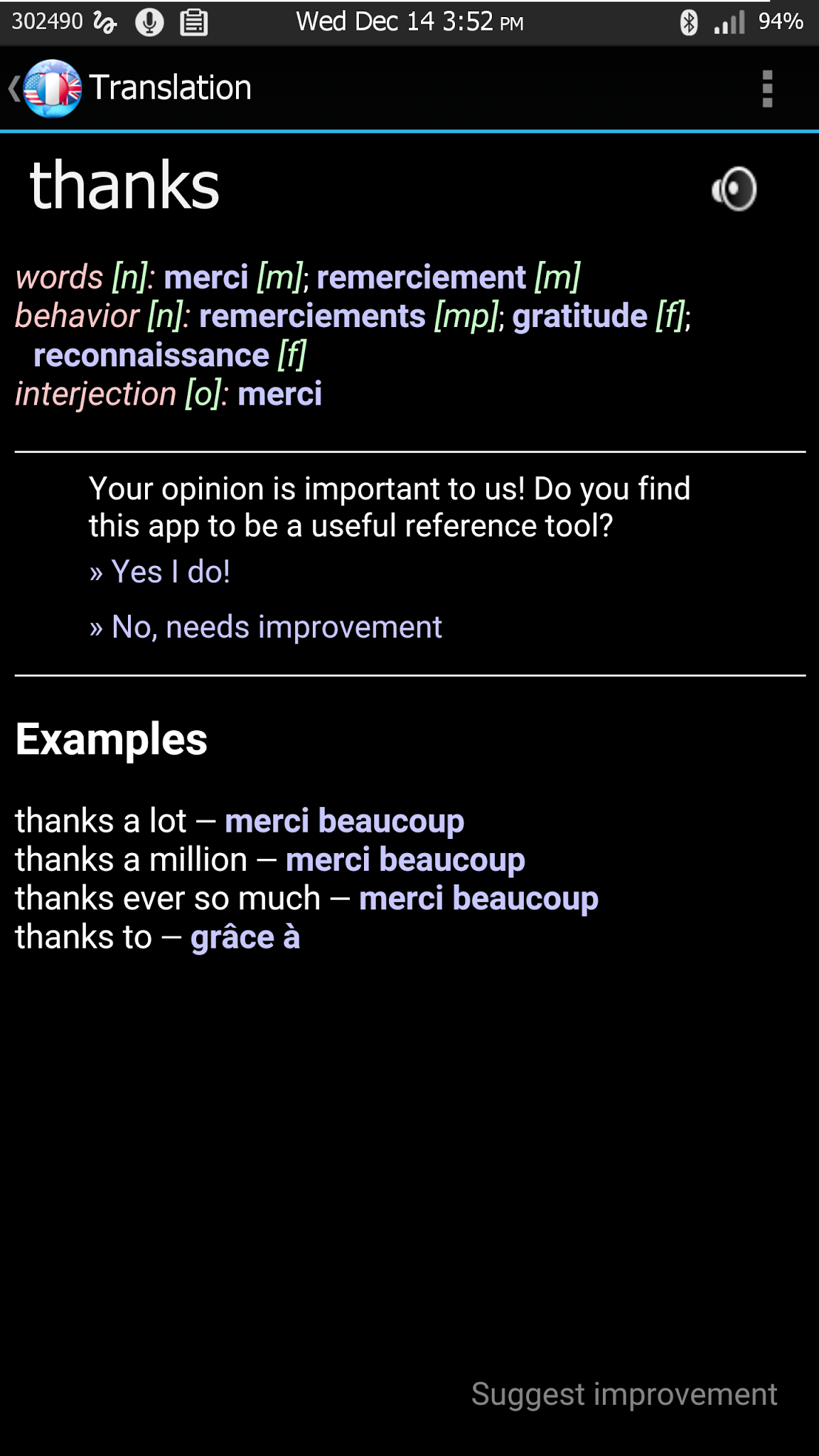
The app is nice because it provides offline translation, and uses Android's voice synthesis to help you understand the pronounciation of words and phrases.
On my phone, I set up the SlovoEd French+ app to trigger when I make an "F" gesture on my phone using GMDGestureControl (root). This has turned out to be a lifesaver in conversation, even for someone like me who considers myself "functionally fluent".
Google Translate
Don't use it. Despite now having online features, the problem with the app is that it doesn't provide usage examples. Although, some may find it useful for its text/image recognition.
I generally advise against using Google Translate unless you really don't feel confortable translating yourself, or you don't feel the translation provided by your primary dictionary app was adequate.
9 Buy a SIM Card
Buy a SIM card for only 3 days in Paris? Really? Yes. Yes, yes, yes.
- It allows you to hail UBERs when you can't use public transport, or, for example, when the trains close
- It allows you to use apps like WhatsApp to communicate with your friends and family on what you're doing. In my case, I used the app to keep in touch with the many people I met at the conferences, and it allowed me to make last-minute plans with others and coordinate rendez-vous points
- It allows you to keep in touch with drivers you carpool with, as described in step 3
As an example, I picked up a Lycanmobile SIM for 15 euros at a phone store. It included 2GB of data, 30 minuts of talk, and 1000 texts. Sure, I won't use all of that, but having the security of the internet is well worth it.
10. Cut Your Baguettes
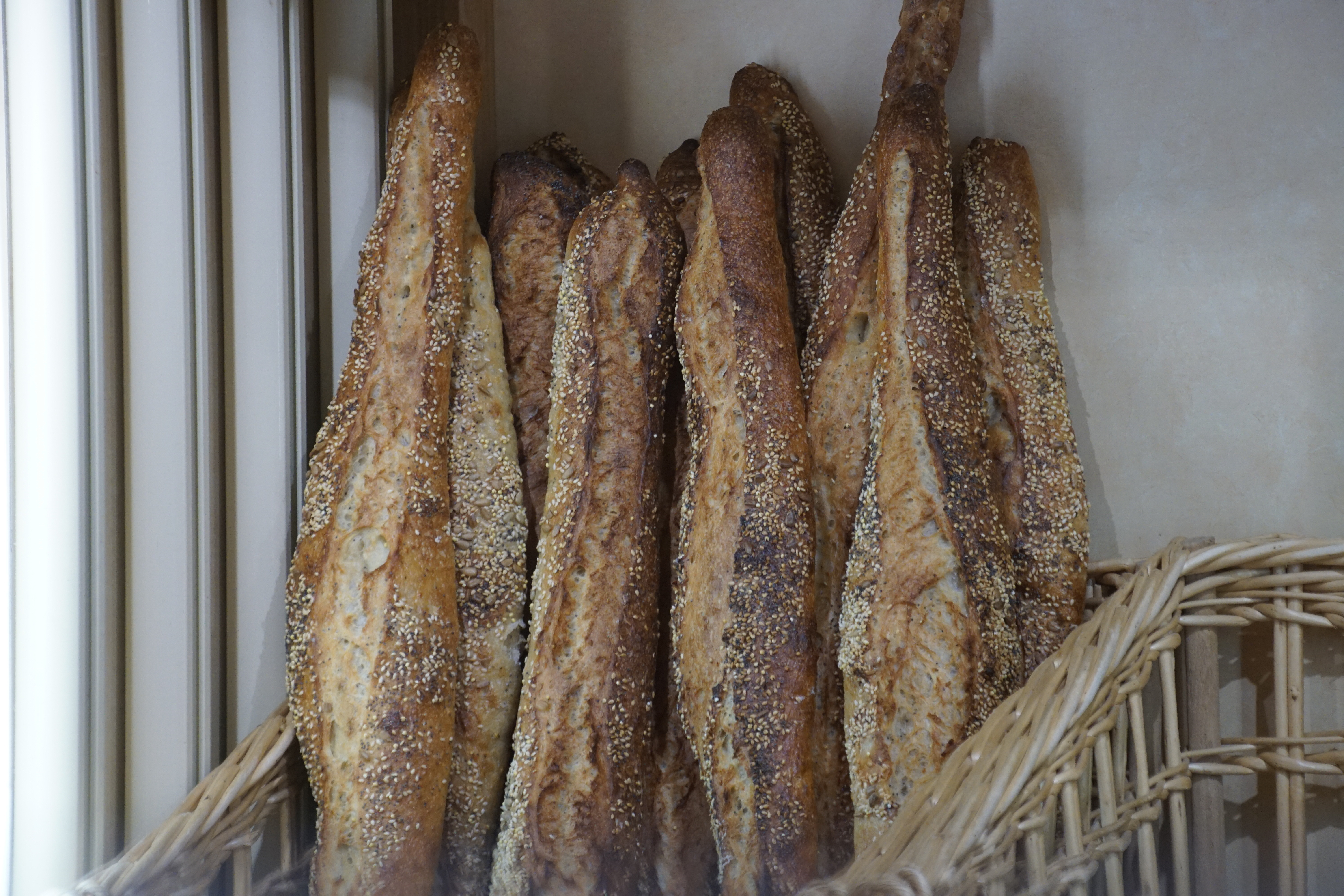
If you're at all like me, one of the first things you'll do when you arrive in Paris, France is buy a fresh baguette. But unless you have a healthy appetite, you will likely have more than 2/3 left, even after munching on it while perusing the city. So where do you store it? Putting such a large baguette in your backpack, you may run the risk of crushing the baguette -- let alone, the baguette's shape doesn't lend itself well to space efficiency.
The answer is simple: ask the baker to cut the baguette in pieces.
Getting pre-cut baguettes, in fact, is something so common that you can often find "mini" baguettes in some bakeries. These often range in size from smaller than a panini bun to the size of a hotdog bun. They also tend to be much cheaper than their whole counterparts.
If your French is a little rusty, you can try asking your baker for cut baguettes with this phrase:
"Pourriez-vous la couper en deux morceaux s'il vous plait, la baguette"
11. Bring Power Adapters
Europe uses a different kind of power outlet from the kind found in North America (in fact delivering more voltage). As a result, make sure to bring at least 2 adapters with you. In particular, I recommend these $1.25 universal adapters found on Amazon. If you do order them, remember that you will likely have to wait 3-4 months for them to arrive from China with standard shipping.
Make sure to get a power adapter with surge protection: these are the power adapters with the third prong insert, located at the bottom of the outlet. Often times, laptops and larger electronics require this "grounding" plug to work.
Of course, if you forget to pack one, there is still hope. In fact, North American - Europe power adapters are commonplace in France and most of Europe, as many appliances imported from other countries use the North American power cord. They are so common, you might just luck out and find some already in your accommodation; I found that my AirBnB host had a lamp attached to a power adapter I could have used.
12. Avoid Uber, Especially for Airports
A lesser known fact about Paris airports is that they often charge cab and Uber drivers hidden fees, causing transportation to cost upwards of $50 per way. Orly Airport, for example, enforces a hidden airport fee for all entering vehicles. Uber imposes a "flat rate" scheme, in which you pay a minimum of 35e ($50) from within Paris. With Uber pool, fares get reduced to 28e ($40), but remember that this is just the minimum; fares for outside metro Paris will cost even more.
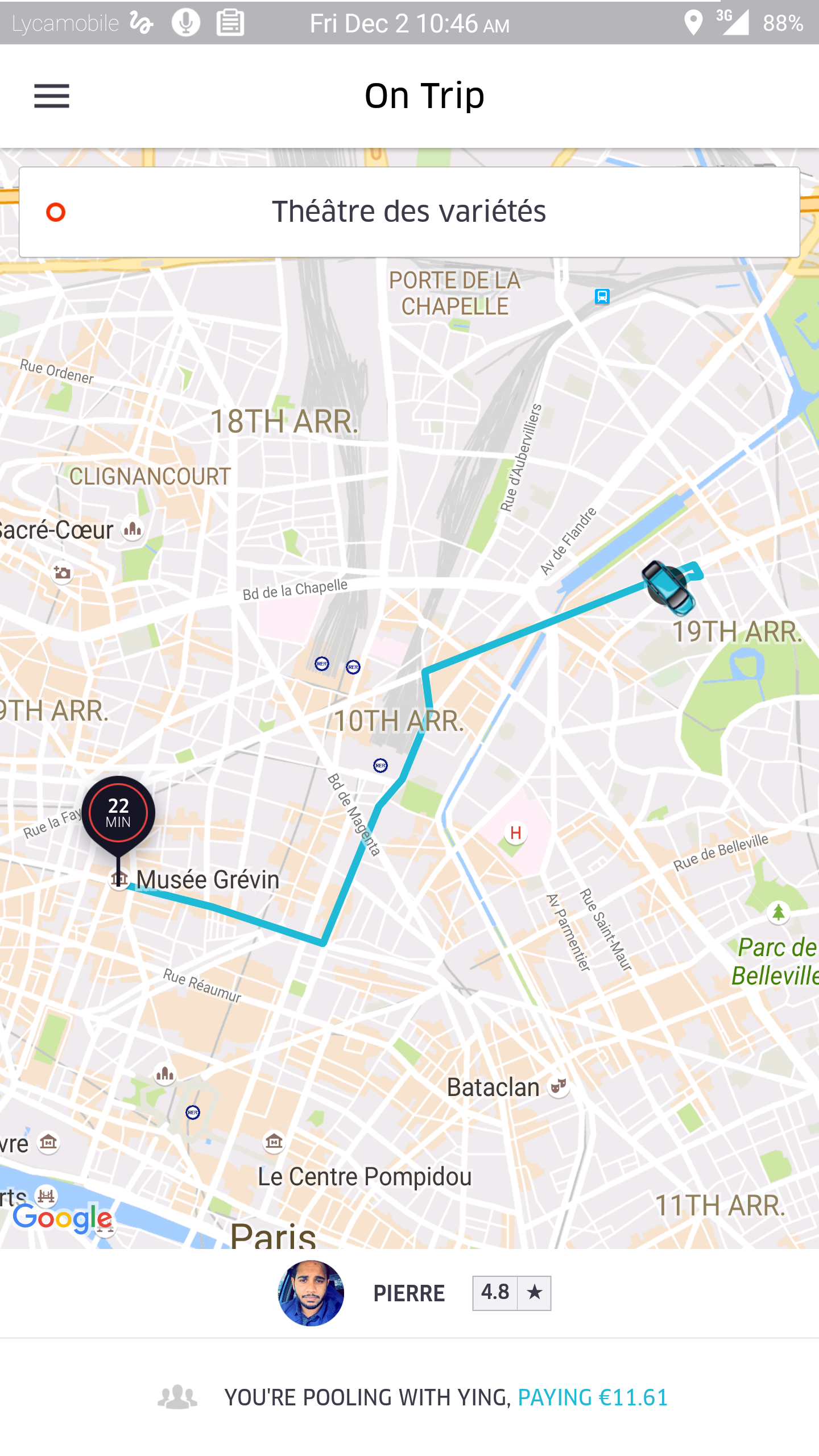
In case it isn't already clear, Uber is very expensive in Paris, France. I did use the service a number of times during my stay, and the base fare only started at 8e for under 4km! For Canadians especially, the exchange rate is cause for worry, as the rate of 1.4e (as of this writing) to cad means a 40% addition to cost.
When possible, always try to take public transport to get to and from airports. For Charles-de-Gaulle airport, you can buy an SNCF train ticket starting from 8.10e to or from metro Paris, with the last trains at midnight. To get to Orly Airport from Paris, you have to take a special "RER" train which operates from the Gare d'Austerlitz (there is about a 15 minute walk, slightly uphill, from where the SNCF trains dock). Pay close attention to the RER train schedule, as schedules vary depending on the weekend/weekday, often ending service earlier than the SNCF counterparts, usually ending around 11 pm. If you miss the last RER train, you will have to hail an Uber/taxi.
Though it may be easier to hail an Uber at times, your wallet will thank you for it.
13. Avoid Laudromats
If you plan on staying in Paris, France for longer than 4-5 days, then you'll more than likely need to wash your clothes. A big piece of travel advice for those needing to wash their clothes in Paris is to avoid all laundromats when possible.
- During the day, most laundromats are full. I checked in 2 laundromats near my host, and both were fully in use, with the smallest wait time being 23 minutes. At least 1 machine was out of order in each location.
- Laundromats are expensive. Not only does each load cost at a minimum 3e (4.50), but you also have to buy soap.
- Laundromats require you to wait for your clothes to wash, then dry. It's a waste of time, better used exploring the city.
So how should you wash your clothes in Paris, France? I came up with some clever ideas:
- Seek an AirBnB with an on-site washing machine. Often times, the host will even let you use their soap for free!
- Buy clothes as you need them. While clothing is generally expensive in Europe, many good deals can be found for under 3e per article. Good places to look include the Paris flea market, outlet malls, and consignment shops. This has the added benefit of a souvenir for when you get home.
- Wash clothes by hand. Though it might seem tedious, washing your clothes by hand in Paris is one of the easiest ways to go. You don't have to move your clothes anywhere. You just have to wash your articles in the bathroom, then hang them.
Better yet, wash your clothes while you shower. You can put all that soap and shampoo to use easily. Just put your clothing articles in the shower, over the drain. Swirl the articles around as you shower. Dry. Job done.
14. Always Use Offline Maps
If there's one thing you can be certain of in France, it's smoking and bad reception. Even if you did follow tip #9 and buy a SIM card, that doesn't guarantee you the ability to use data anywhere. Especially with providers like LycanMobile, you should expect to get shoddy reception everywhere you are (you don't know when you will need to urgently hail that Uber to get to a bathroom).
For this reason, I highly suggest an app called Maps.me. This is an app that lets you download entire countries and region maps for offline use, provides GPS features, and allows you to catalog your traveled destinations.
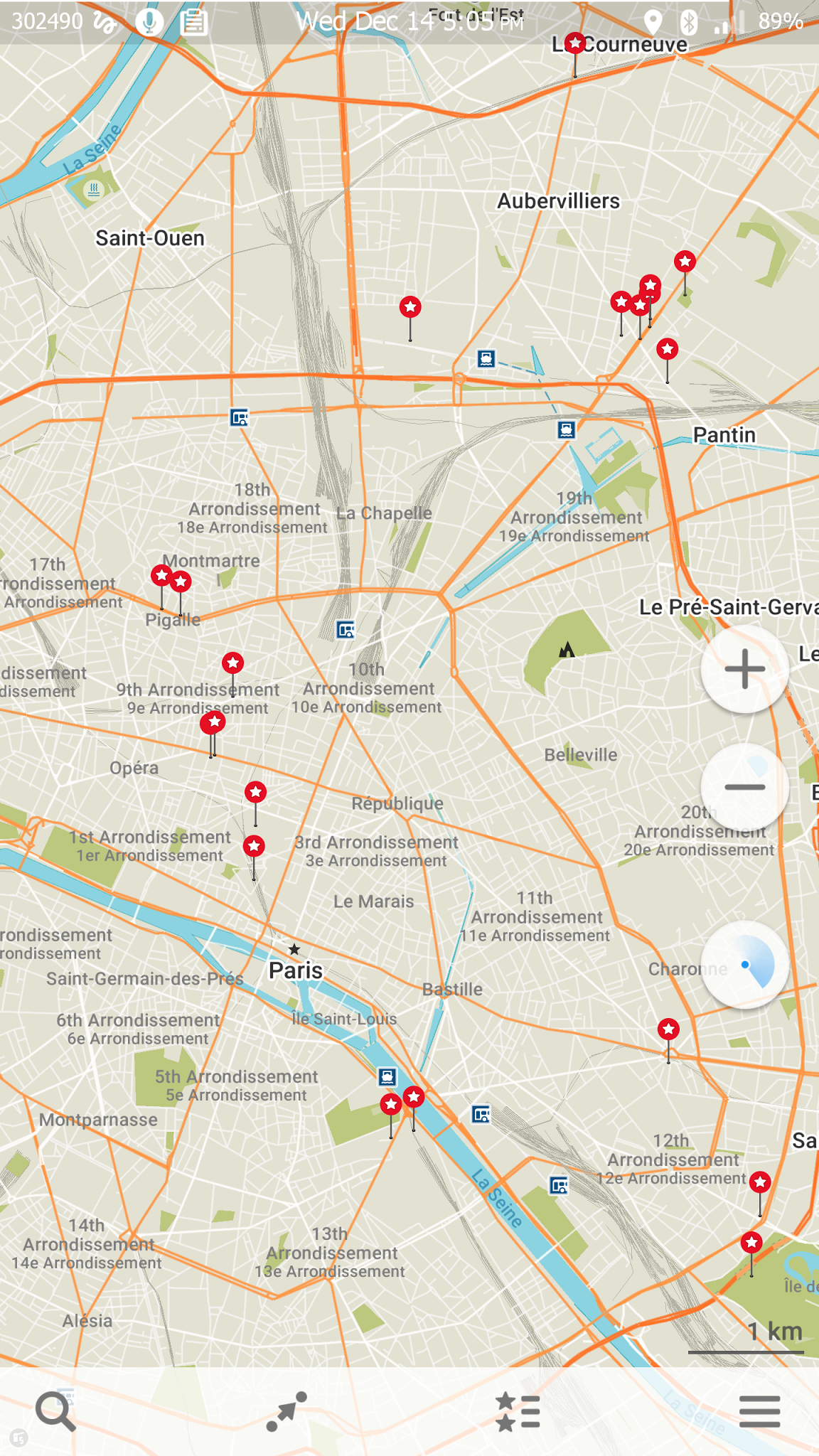
Maps.me also comes with a handy navigation toolset, allowing you to use it like a GPS, and give you instructions on where to turn. I also really enjoyed its night mode (great for AMOLED screens to conserve battery while navigating).
Make sure to download any regions you will be travelling to prior to departure. Maps can be very big in size; just downloading Paris took 172MB.
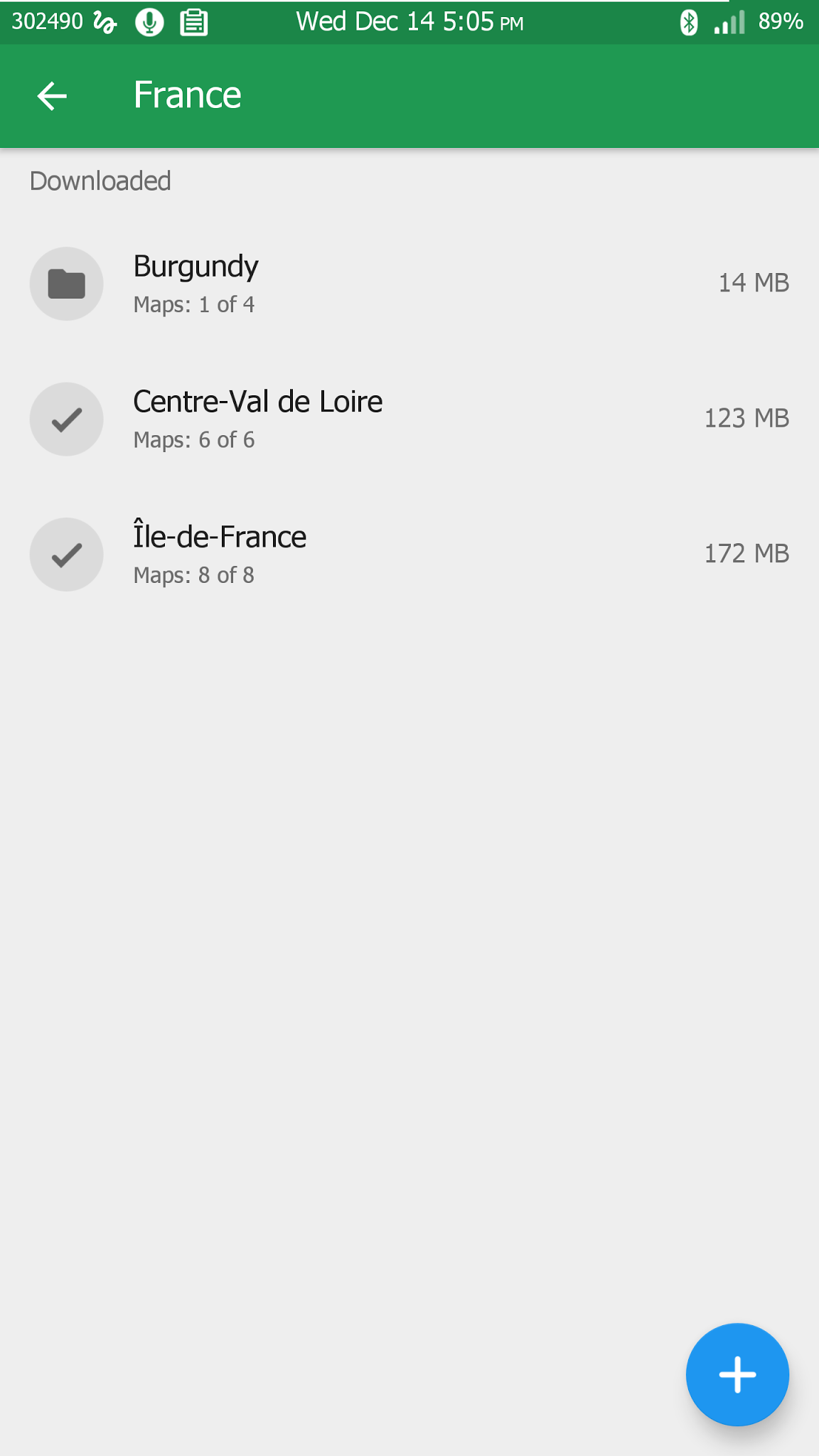
15. Request a Non-Smoking Room
If there is one thing you can be sure of in France it's smoking. And I don't just mean some passerby on the street smoking; I mean smoking.
If you are sensitive to smoke, you will want to request a non-smoking room. I neglected to do this in my AirBnB selection and ended up getting very sick due to the smoke inhalation for the second half of my trip. My host had the not-surprising tendancy to smoke constantly throughout the day. My room, being on the upper level, recieved the smoke, as hot air rises. Even after aerating the room, I still smelled the smoke. My experience, believe it or not, is actually very normal for staying anywhere in Paris. In Paris, smoking is just part of the culture. In restaurants, you will have to get used to smelling smoke from smokers outside the doors, as customers open and close the doors. In fact, I looked a number of times at alternative non-smoking rooms, and I was not able to find anything for under $55/night (a problem with AirBnB is that, as far as I can tell, it does not provide the option to filter by non-smoking rooms).
So take it upon yourself, and request a non-smoking room, if you can find one. Your health will thank you for it.
(Bonus Tip) You Can Still Amazon
Did you know... France has an Amazon too? Yep, that's right: they order stuff online too.
But what you probably didn't know is that your prime trial resets for different regions. This means that even if you've used up your Prime trial here in Canada, you can do it again, since France is a different country.
Now, before you go sign up, I really don't recommend this unless there's something you really need and can't get in stores in France. For example, I lost my Pebble Time charger, and had to order one online. Instead of waiting to get home and pick it up there, I ordered it online. Unfortunately, the parcel never arrived to my AirBnB, as apparently, I typed the address in wrong. Thankfully, I was able to call customer service and get the transaction reversed.
It goes beyond that too: in addition to your normal Amazon, France's Amazon has a grocery/food delivery service, along with other specialty item delivery services. During my stay, I did sign up for a prime subscription, and ordered some of my friends in France items, gift-wrapped (this is something you can specify for items for free during checkout). This does work -- just make sure you get the address right.

That's It!
Have you stayed to the end, and gotten all the tips down? Then you're ready for your next adventure in Paris, France. Please feel free to comment below if you have any other great tips I may have missed.
